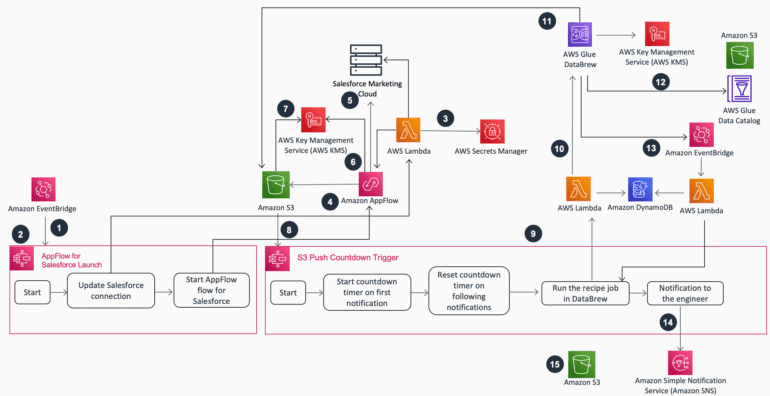TL;DR:
- AWS Clean Rooms updates bring machine learning (ML) and differential privacy features.
- ML support allows collaborative data analysis without exposing original data.
- Differential privacy adds controlled “noise” to query results, safeguarding data privacy.
- Clean Rooms ML offers ready-to-use machine learning models for predictive analysis.
- Users gain flexibility and control over model predictions.
- Enhanced privacy control functions ensure data security within collaborative settings.
Main AI News:
Amazon Web Services (AWS) is raising the bar in secure data sharing with the latest enhancements to its acclaimed service, Clean Rooms. This update brings cutting-edge machine learning (ML) and differential privacy features into the fold, offering businesses unparalleled opportunities for secure collaboration and data-driven insights.
In this era of data-driven decision-making, safeguarding sensitive information while harnessing the potential of ML models is paramount. Clean Rooms’ integration of machine learning support is a game-changer. It empowers users to tap into ML models without exposing their valuable original data, opening the doors to collaborative data analysis without compromising data privacy—an invaluable asset for enterprises seeking meaningful insights while safeguarding sensitive information.
One of the standout features is the introduction of differential privacy capabilities within Clean Rooms. This innovative addition introduces a controlled level of “noise” into query results, guaranteeing the accuracy of analysis while concealing individual data contributions. By treating privacy as a finite resource with a privacy budget component, this feature offers robust protection against data leaks, preventing the depletion of privacy resources and thwarting potential breaches.
Differential privacy, a cutting-edge technology that bolsters privacy during data sharing, enables the revelation of statistical patterns without exposing personal specifics. AWS Clean Rooms simplifies the application of this technology, making it accessible to a wider audience. By enabling the differential privacy function and configuring privacy policies within collaborative settings, users can effortlessly harness this privacy-enhancing technology.
The introduction of Clean Rooms ML is a pioneering step forward, allowing users to leverage machine learning models for predictive analysis while safeguarding sensitive data. Its applications span diverse industries, enabling targeted marketing, customer identification, and accelerated clinical studies—all without compromising critical information.
Clean Rooms ML takes the hassle out of model construction and deployment, as AWS-managed models are readily available for organizational data-sharing collaborations. This seamless integration of ML capabilities provides users with flexible controls to fine-tune model predictions, ensuring adaptability and precision in their analyses.
Furthermore, Clean Rooms introduces a suite of privacy control functions, granting users the authority to manage queries and outputs performed by Clean Rooms members with appropriate permissions. This additional layer of control enhances data security and privacy measures within the collaborative ecosystem.
Conclusion:
AWS Clean Rooms’ latest update brings together the best of machine learning and differential privacy, offering businesses a secure and efficient platform for data-driven collaboration. With these innovations, enterprises can confidently pursue data analysis and insights while safeguarding their most sensitive information, setting a new standard for secure data sharing in the business world.

